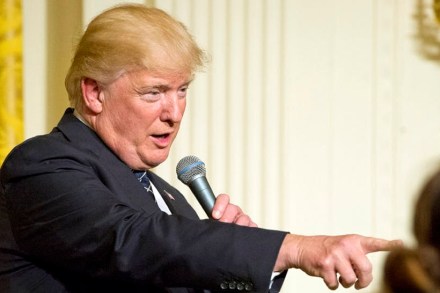Let’s rein in Brexiteer triumphalism before we all go mad
According to archaeologists and all the papers last week, the 11th-century villagers of Wharram Percy, North Yorkshire, used to mutilate their dead, chopping off their heads and breaking their legs to minimise the danger of zombie resurrection. ‘Imagine being afraid,’ I chortled while reading this, ‘that the undead might put you in mortal danger!’ Whereupon I flicked forward a couple of pages and came across Michael Howard’s plan to defend Gibraltar by sending a gunboat. Personally, I’m against the idea of war with Spain. Although I say that cautiously, because we Remoaners must not hold back the will of the people. Indeed, such is the way of things these days,




















